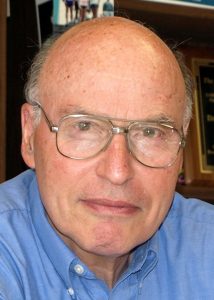December 9 at 12PM EST – Plenary Session in the Memory of Prof. Roger Kasperson
Dr. Seth Tuler
Seth Tuler is an Associate Professor in the Department of Integrative and Global Studies Division, Worcester Polytechnic Institute, MA. Seth received his Ph.D. from the Environmental Science and Policy Program, Clark University, Worcester, MA in 1996 under Roger Kasperson and Ortwin Renn.
Seth’s research interests concern public participation, risk governance, and developing tools to characterize human impacts and vulnerabilities to risk events. Most recently his work has focused on climate adaptation planning processes at local, regional, and national scales. His experience providing technical assistance to communities impacted by facilities in the US nuclear weapons complex since 1996 and research on public engagement led to membership on a series of advisory committees. He was invited to advise the National Cancer Institute in its efforts to inform people about health risks from iodine-131 nuclear weapons testing fallout and was a member of federal Advisory Committee on Energy-Related Epidemiologic Research and chaired its Subcommittee for Community Affairs for 2 years.
He served on the National Academy of Science’s Committee on Transportation of Spent Nuclear Fuel and High Level Radioactive Waste and was asked to co-author two technical reports for President Obama’s Blue Ribbon Commission on America’s Nuclear Future on social distrust, with Roger Kasperson, and public engagement, with Eugene Rosa and Thomas Webler. More recently he served on the National Academies of Sciences, Engineering, and Medicine’s Committee on Alternatives for the Demilitarization of Conventional Munitions; National Academies of Sciences, Engineering, and Medicine’s Standing Committee on Chemical Demilitarization; and National Research Council Committee on Review of Criteria for Successful Treatment of Hydrolysate, a hazardous byproduct of chemical weapons demilitarization, at two facilities in Pueblo, Colorado and Blue Grass, Kentucky.
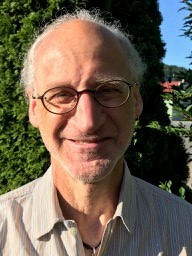
Robin Cantor
Dr. Robin Cantor is an economist and a managing director in Berkeley Research Group’s Washington, DC office. She has a Ph.D. in economics from Duke University with a field in econometrics and a B.S. in mathematics with a concentration in statistics from Indiana University of Pennsylvania. Dr. Cantor is a past president and Fellow of the Society for Risk Analysis, a past president of the Women’s Council on Energy and the Environment, and a past president of the Matrix Organization, a business incubator for women and minority owned startups. She served as Program Director of Decision, Risk, and Management Sciences at the National Science Foundation, taught in the graduate program at Johns Hopkins University, held senior research appointments at Oak Ridge National Laboratory, and has served on more than 20 scientific review and advisory boards including the Research Strategies Advisory Committee of the US EPA’s Science Advisory Board.
Dr. Cantor’s consulting practice focuses on economics at the interface of science and technology. Many of her projects involve evidence-based economic analysis for expert testimony, risk analysis, and other advisory services addressing energy, environmental, and health issues. Dr. Cantor has extensive experience with class actions and other large claimant matters. She has worked on more than 40 class certification matters, engaged about equally by plaintiffs and defendants. Dr. Cantor joined other prominent economists and social scientists in an amicus curiae brief submitted to the U.S. Supreme Court in Tyson Foods, Inc. v. Bouaphakeo et al. regarding the reliability of “average” or statistical evidence in class actions. She is a recognized thought leader on product liability and is the editor of a book published by the American Bar Association on the subject and has published widely on economics, policy issues, and risk management.
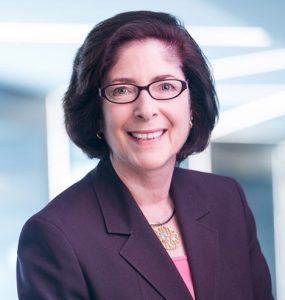
Kirstin Dow
Dr. Kirstin Dow is Carolina Trustees Professor of Geography, earning her Ph.D. from Clark University under Roger Kasperson before joining the faculty of the University of South Carolina in 1996. She is a social-environmental geographer focusing on understanding climate impacts, vulnerability, and adaptation. She is recognized for her community engagement and interdisciplinary science.
Dow works on climate adaptation from the community and regional to the national and international levels. Between 2002 and 2004, she took leave from the University of South Carolina to serve as the Coordinator of the Risk and Vulnerability Programme across the internationally distributed centres of the Stockholm Environment Institute. Based in SEI’s Main office in Stockholm, she was also the Manager of the Poverty and Vulnerability Programme. She currently serves as principal investigator of the Carolinas Integrated Sciences and Assessments (CISA) (www.cisa.sc.edu), a NOAA-supported Regional Integrated Sciences and Assessments (RISA) team partnering with decision makers to bridge climate science, understanding of adaptation choices and decision making to build adaptive capacity and support climate adaptation strategies specific to water resources, coastal regions, and public health concerns in the Carolinas.
Dow brought her Carolinas experiences into her role as a co- editor of Climate of the Southeastern United States (2013), and Climate in Context: Science and Society Partnering for Adaptation (2016). The later volume is collection and synthesis the 20 years of lessons garnered by RISA program teams in best practices for providing support for regional decision-makers and policy planners addressing climate sensitive topics and the implications for science policy. Another effort focused on communicating climate science to broad audiences, The Atlas of Climate Change (with Tom Downing), received a Book of the Year award from Planeta and was reprinted in three editions and eight languages. She has served as an author for the Intergovernmental Panel on Climate Change (AR5) and the 3rd and 4th US National Climate Assessments.
Dow was named as Fellow to the 2016 inaugural class of AAAS Leshner Leadership Institute Public Engagement with Science. Dow currently serves as the Co-Chair of Climate Working Group, a standing committee of NOAA’s Science Advisory Board.

Howard Kunreuther
Howard Kunreuther is James G. Dinan Professor Emeritus of Decision Sciences and Public Policy, and Co-Director of the Center for Risk Management and Decision Processes at the Wharton School, University of Pennsylvania. Howard has a long-standing interest in ways that society can better manage low-probability, high-consequence events related to technological and natural hazards. He is a fellow of the American Association for the Advancement of Science (AAAS), a distinguished fellow of the Society for Risk Analysis, and recipient of the Shin Research Excellence Award from the Geneva Association and International Insurance Society (IIS) in recognition of his outstanding work on the role of public-private partnerships in mitigating and managing risks. He received the Elizur Wright Award twice for the publication that made “the most significant contribution to the literature of insurance.”
Howard recently served on the Technical Mapping Advisory Council under the direction of the Federal Emergency Management Agency (FEMA), and served as a Coordinating Lead Author for the Intergovernmental Panel on Climate Change (IPCC)’s 5th Assessment Report, Working Group III, Chapter 2, “Integrated Risk and Uncertainty Assessment of Climate Change Response Policies.”
His recent books include “The Ostrich Paradox: Why We Underprepare for Disaster” (with R. Meyer, Wharton School Digital Press, 2017) “The Future of Risk Management” (with R. Meyer and E. Michel-Kerjan, University of Pennsylvania Press, 2019), and “Mastering Catastrophic Risk: How Companies are Coping with Disruption” with M. Useem (Oxford University Press, 2020).
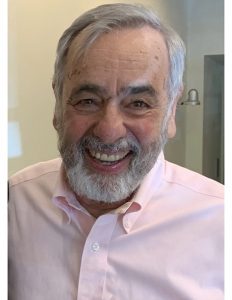
Nick Pidgeon
Nick Pidgeon PhD, MBE is Professor of Environmental Psychology and Risk at Cardiff University and Director of the Understanding Risk Research Group there. His extensive interdisciplinary research portfolio looks at public engagement, communication and decision-making for environment, energy, and emerging technology risks. Following his initial work on behavioural decision making and the organisational preconditions to major system accidents, he has specialised in the social and cultural determinants of risk perception and communication. He first collaborated with Roger Kasperson in the period 1998-2003, organising the Cumberland Lodge Social Amplification Workshop and subsequent book of papers arising co-edited with both Roger and Paul Slovic (Cambridge University Press, 2003). He has led large research programmes on risk perception for the Leverhulme Trust and was a Co-Investigator of the US National Science Foundation Centre for Nanotechnology in Society at Santa Barbara (2005-2015). His current work looks at some of the societal challenges we face in meeting net zero carbon emissions through energy system change, climate resilience and adaptation, as well as the societal acceptability of carbon dioxide removal technologies. He has been a science advisor to the UK Energy and Climate Change Department, the UK Environment Department, and currently the UK Department for Transport. In 2006 Nick chaired the UK’s Cross-Party Parliamentary inquiry ‘Is a Cross-Party Consensus on Climate Change Possible – or Desirable?’ which recommended the setting up of the UK Climate Change Committee, an innovative climate governance mechanism which was the first of its kind in the world. He was awarded an MBE by the Queen in 2014 for services to climate change awareness and UK energy security policy and is currently a member of SRA Council. He has spent a significant part of 2020 and 2021 in providing behavioural science and risk communication advice to both the UK and Welsh Governments.

Ortwin Renn
Ortwin Renn is scientific director at the International Institute for Advanced Sustainability Studies (IASS) in Potsdam (Germany) and professor for environmental sociology and technology assessment at the University of Stuttgart. He also directs the non-profit company DIALOGIK, a research institute for the investigation of communication and participation processes. Renn is Adjunct Professor for “Integrated Risk Analysis” at Stavanger University (Norway), Honorary Professor at the Technical University Munich and Affiliate Professor for “Risk Governance” at Beijing Normal University. His research interests include risk governance (analysis perception, communication), stakeholder and public involvement in environmental decision making, transformation processes in economics, politics and society and sustainable development.
Ortwin Renn has a doctoral degree in social psychology from the University of Cologne. His career includes teaching and research positions at Clark University (Worcester, USA), the Swiss Institute of Technology (Zuerich) and the Center of Technology Assessment (Stuttgart). His honours include the National Cross of Merit Order, honorary doctorates from the Swiss Institute of Technology and the Midsweden University, the “Outstanding Research Award” of the Society for Integrated Disaster and Risk Management (IDRiM) and the “Distinguished Achievement Award” of the Society for Risk Analysis (SRA). In 2019, he was awarded the Order of Merit from the State of Baden-Württemberg for special achievements in scientific policy advice.
Renn is a member of the German National Academy of Sciences “Leopoldina”, the Berlin-Brandenburg Academy of Sciences (Berlin), and of the Board of Directors of the German National Academy of Technology and Engineering (Acatech). He belongs to numerous scientific and academic advisory councils. From 2006 to 2012, he headed the Sustainability Advisory Council of the State of Baden-Württemberg and was a member of the Ethics Commission “The Future of Energy” appointed by Chancellor Angela Merkel. Until 2014, he served on the “Science and Technology Advisory Council”, an advisory body for EU Commission President Jose Manuel Barroso. Since 2019, he has been a member of the Federal Government’s “Climate Change” research platform and heads the Sustainability Platform of the State of Brandenburg.
Renn has published more than 30 monographs and over 250 peer reviewed articles. His most prominent English publication is the book “Risk Governance. Coping with Uncertainty in a Complex World (London: Earthscan 2008).
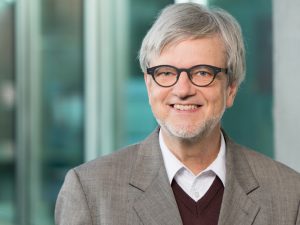
Paul Slovic
Paul Slovic received his B.A. degree from Stanford University, and his M.A. and Ph.D. degrees in psychology from the University of Michigan. In 1976, Dr. Slovic founded the research institute Decision Research with Sarah Lichtenstein and Baruch Fischhoff, where he currently serves as President. He has been a professor of psychology at the University of Oregon since 1986. He and his colleagues worldwide have developed methods to describe risk perceptions and measure their impacts on individuals, industry, and society. His most recent work examines “psychic numbing” and the failure to respond to global threats from Covid 19, genocide and nuclear war. He publishes extensively and serves as a consultant to industry and governmentn.You can read about this work on the website arithmeticofcompassion.org
Dr. Slovic is a past President of the Society for Risk Analysis and in 1991 received its Distinguished Contribution Award. In 1993 he received the Distinguished Scientific Contribution Award from the American Psychological Association. In 1995 he received the Outstanding Contribution to Science Award from the Oregon Academy of Science. He has received honorary doctorates from the Stockholm School of Economics (1996) and the University of East Anglia (2005). Dr. Slovic was elected to the American Academy of Arts and Sciences in 2015 and the National Academy of Sciences in 2016.
